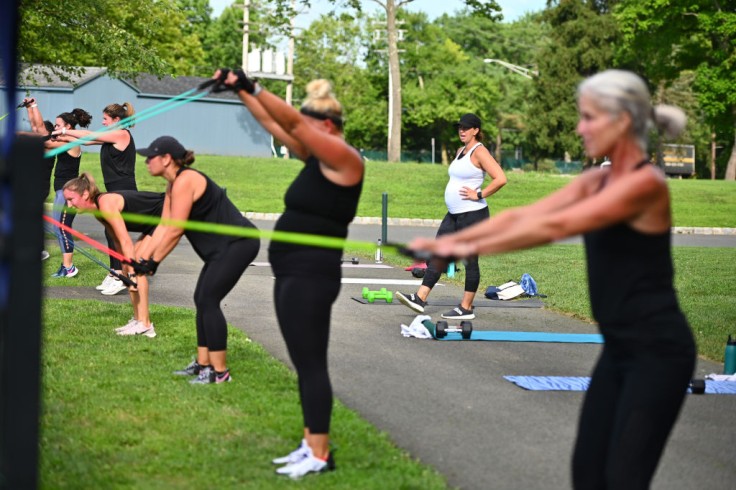
Expectant mothers who keep their bodies in great shape by doing regular pregnancy exercises are also helping the baby inside their womb develop healthier lungs, which could help prevent asthma in childhood.
A study of 814 babies born in Oslo and Stockholm from December 2014 to October 2016 has revealed that pregnancy exercises had a vital contribution to the lung development of the offspring. Experts from the University of Oslo discovered that babies born to moms who were mainly inactive during pregnancy were more than likely to have poor lung function.
About 47 babies in the surveyed group exhibited low lung function, with their mothers admitting that they did few exercises while pregnant. Babies with average lung function, however, had moms who had an active lifestyle during the pregnancy.
Read Also: Baby Deliveries Stopped as Vaccine Mandate Leads to Mass Resignation in New York Hospital
Lung Function Measurements
Dr. Hrefna Katrin Gudmundsdottir, who conducted the study with her team, asked the moms to answer questionnaires from the 18th to the 34th week of their pregnancy. The survey involved details of their health, nutrition, lifestyle, and socio-economic status. The women also informed the experts of the type of pregnancy exercises they did and classified the activities as either "inactive, fairly active or very active."
When their babies were born, the experts did lung measurements at three months old and recorded the flow and volume of the air inhaled and exhaled during the evaluation process.
Gudmundsdottir's team learned that babies of inactive mothers measured slightly lower lung function and could likely develop asthma by the time they turn ten years old. But to determine if their hypothesis is correct, the team will be conducting follow-up assessments on the babies as they grow older.
"We also hope to explore associations between maternal physical activity and asthma, allergies and other non-communicable diseases in the future," Gudmundsdottir said. Their findings were presented at the 2021 European Respiratory Society International Congress.
While much has been said about the importance of staying fit even when pregnant, Queen Mary University of London Professor Jonathan Grigg noted that the study had highlighted pregnancy exercises' impact on the offspring. He agreed, however, that more studies should be done to discover the links of the babies' lung function to the mothers' exercises.
Best Pregnancy Exercises
The American College of Obstetricians and Gynecologists (ACOG) also recommends pregnancy exercises like walking, swimming, yoga, and stationary cycling, except if the mother is carrying more than one baby or has a heart or lung condition that will require a doctor's scrutiny. Moms with placenta previa are also advised to double down on heavy activities, including exercises.
However, if mothers get an all-clear from their OBGYN, they can do moderate aerobic exercises for at least 150 minutes a week. Their pregnancy exercises must be spread out in smaller sessions to get their heart rate going and their muscles toned. Moms who weren't active before their pregnancy should start slow and gradually increase to a comfortable pace.
Pregnancy exercises are also beneficial for the mother's preparation for labor. It's also a mood booster that reduces back pain and constipation.